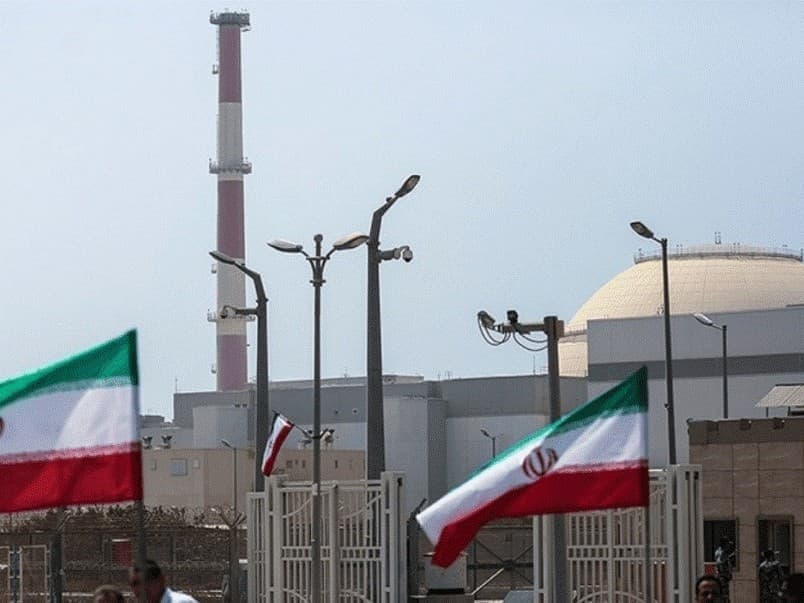Business
Iran Resumes Nuclear Activities Amid IAEA Inspection Blockade

Iran has resumed significant activities related to its nuclear weapons development program, while simultaneously obstructing inspections by the International Atomic Energy Agency (IAEA). A senior source within the European Union’s security framework revealed that multiple sites, including those targeted during U.S. and Israeli strikes in June, have been off-limits for inspection. This situation raises serious concerns about the transparency and intentions of Iran’s nuclear ambitions.
Key Sites Under Scrutiny
The IAEA has expressed particular interest in key facilities such as Fordow and Natanz, both of which have been at the center of international scrutiny for years. According to the EU source, there is significant Iranian activity at another site located near Natanz that has become a focal point since the military strikes. The continued obstruction of access to these locations suggests a deliberate attempt by Iran to advance its nuclear capabilities without oversight.
The situation has escalated tensions between Iran and the West. The IAEA’s inability to conduct inspections raises questions about compliance with international agreements aimed at curtailing nuclear proliferation. The EU source emphasized that such actions undermine the efforts to establish trust and ensure regional stability.
Implications for Global Security
The ramifications of Iran’s actions extend beyond its borders, impacting global security dynamics. The EU and other international stakeholders are closely monitoring developments. The potential for Iran to enhance its nuclear weapons program poses a risk not only to its neighbors but also to broader international peace.
In light of these developments, diplomatic efforts to engage Iran may require new strategies. The lack of cooperation from Iran further complicates ongoing negotiations regarding its nuclear program. As the situation evolves, the need for a unified international response becomes increasingly critical.
The IAEA’s role as a watchdog is vital in ensuring that countries adhere to their commitments regarding nuclear development. The current state of affairs highlights the challenges faced by the agency in enforcing compliance, particularly when confronted with nations that resist oversight.
As Iran continues its nuclear activities without IAEA inspections, the international community remains vigilant, recognizing that the stakes are high. The situation demands careful navigation to prevent escalation and promote stability in a region fraught with tension. The world watches closely as this situation unfolds, aware of its potential global implications.
-

 Health3 months ago
Health3 months agoNeurologist Warns Excessive Use of Supplements Can Harm Brain
-

 Health3 months ago
Health3 months agoFiona Phillips’ Husband Shares Heartfelt Update on Her Alzheimer’s Journey
-

 Science2 months ago
Science2 months agoBrian Cox Addresses Claims of Alien Probe in 3I/ATLAS Discovery
-

 Science2 months ago
Science2 months agoNASA Investigates Unusual Comet 3I/ATLAS; New Findings Emerge
-

 Science1 month ago
Science1 month agoScientists Examine 3I/ATLAS: Alien Artifact or Cosmic Oddity?
-

 Entertainment5 months ago
Entertainment5 months agoKerry Katona Discusses Future Baby Plans and Brian McFadden’s Wedding
-

 Science1 month ago
Science1 month agoNASA Investigates Speedy Object 3I/ATLAS, Sparking Speculation
-

 Entertainment2 months ago
Entertainment2 months agoLewis Cope Addresses Accusations of Dance Training Advantage
-

 Entertainment4 months ago
Entertainment4 months agoEmmerdale Faces Tension as Dylan and April’s Lives Hang in the Balance
-

 World3 months ago
World3 months agoCole Palmer’s Cryptic Message to Kobbie Mainoo Following Loan Talks
-

 Science1 month ago
Science1 month agoNASA Scientists Explore Origins of 3I/ATLAS, a Fast-Moving Visitor
-

 Entertainment4 months ago
Entertainment4 months agoMajor Cast Changes at Coronation Street: Exits and Returns in 2025









